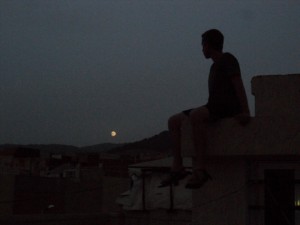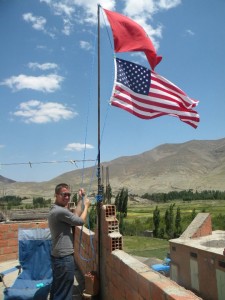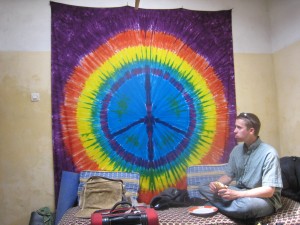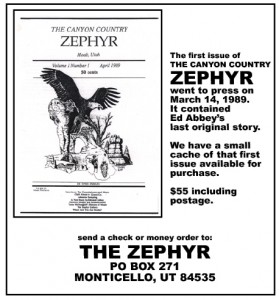Gaining Perspective…Volume 6
Two Years in the Kingdom of Morocco
By Charlie Kolb
It’s midsummer in the High Atlas and the air is heavy with heat and light. Temperatures climb often into the 90s during the day, but stay in the 60s at night. Most Peace Corps Volunteers have trouble sleeping during the summer,  indeed the nearby city of Er-Rachidia averages around 115 degrees when the sun is up and then drops to slightly above human body temperature at night. When I find the need to go to the city to run errands or pay bills I sleep fitfully if at all, wreathed in sweat and swatting at sandflies.
indeed the nearby city of Er-Rachidia averages around 115 degrees when the sun is up and then drops to slightly above human body temperature at night. When I find the need to go to the city to run errands or pay bills I sleep fitfully if at all, wreathed in sweat and swatting at sandflies.
Sleep still comes easy to people up here in the village however, and overall, summer is the most pleasant time of year. The trees along the river are alive with dark green leaves and the stork chicks have fledged from their nest on top of a nearby hotel. I watch them in the mornings from my roof, ungainly and awkward, flapping about after their more graceful parents in search of food.
The wheat is heavy and golden in the fields and the harvest will come any day now. People here are praying that it will not rain anytime soon, as late summer rains can cause the wheat to mold on the stalk and entire crops have been lost that way. In subsistence farming situations like this one, losing a crop is not an option and one errant storm can spell disaster for the entire year. Watermelons are in season down in the lowlands. Orange season has passed and I am eagerly awaiting Pomegranate season. The Pomegranates here are the size of grapefruit and pale yellow when ripe. They flood the markets for a few weeks every year and their husks are along every road and donkey path in the area. Every child in town tends to have a pomegranate in their hand and I fill my tiny refrigerator with them, treating myself to a bowlful of the chilled seeds a few times a day.
I spend most of my time out in the village talking with Moroccans, although I often listen more than I talk. Recently my language has progressed to the level that I am able to converse on two complicated topics than I had previously had to avoid; politics and religion. Religion and politics are tricky to discuss even in my own tongue, in my own country. Here it is made more complicated by the policies that I am encouraged to adhere to as a Peace Corps Volunteer, as well as the potentially sensitive nature of the culture that I live and work in. The Peace Corps is like most government entities that operate overseas. We are like the U.S. State Department in the sense that we are representatives of America as a whole, not just the portion of it we may agree with. Love or hate the government and its policies; it doesn’t particularly apply when you are working federally overseas.
America’s position on the world is (publicly) my position as well, and I am duty bound to express it as such. When conversations stray to the overly sensitive realm, into areas that could prove problematic or controversial, PCVs are encouraged to steer clear and say we cannot talk about it. Examples of this include a recent event in Morocco where a bomb was detonated in a popular Marrakech café killing several tourists and Moroccan civilians, and injuring many others. On the heels of this came the death of Osama Bin Laden, an occurrence that weighed heavy on the minds of most PCVs, and one that we were again encouraged not to speak about with Moroccan nationals. Mention of the wars and the America-involved operations in Afghanistan, Iraq, and now Libya, is also discouraged. I can understand this voluntary limit on what I discuss, or write about for that matter. While freedom of speech may be paramount back on U.S. soil, it does not always need to be exercised. Just because you are thinking one thing, doesn’t necessarily mean you have to share it with the world. In essence, free speech is a gift that is to be used wisely; saying only what is necessary, in my book, is the way to go. Especially in situations that could potentially jeopardize our safety or security as volunteers; even if you are talking with a trusted friend you can never be sure of who else is listening.
Religion is another topic that can become heated quickly, and as a federal agency, we are neutral on the subject of religion. Church and state are officially separated by law in the US and PCVs are most definitely tied to the state. However, most of us inevitably get the question (sometimes daily) of “Are you Muslim?” or “Do you pray?”. I was encouraged, as also were my peers, to answer “Christian” when asked that particular question. This is because Christianity, along with Judaism, is considered a previous iteration of Islam itself; in the text of the Koran we are called “the people of the book”. Most, though not all, Moroccan Muslims will easily accept the fact that the American in their village is Christian, and relationships are seldom strained over the question of religion. I can see where my agency is coming from on this practice. Belief systems such as atheist and agnostic, and eastern philosophies such as Buddhism and Taoism, are less easily accepted here, because they are little understood and not directly related to Islam itself. There are plenty of exceptions to this rule however, and I can think of at least one fellow PCV who regularly admits his Buddhist philosophies to his Moroccan friends, with good results I might add.
Religion is as tricky as politics, if not more so, but neither are as difficult to deal with or discuss as I was led to believe by American popular culture and the American media. Living in the Islamic world has proved to be far easier than I anticipated, and oftentimes I feel more universally loved and accepted here than I did back home. Sure, I can’t talk about a lot of things with my Moroccan friends. But there are no holds barred on asking questions. So, for a change of pace in this column, I am going to detail some of the general Moroccan views on the American people, our lifestyle, and our leaders. Bear in mind that any quotations from Moroccan nationals are translated from Arabic or Tamazight Berber, unless specified otherwise. 
When I walk down an unfamiliar street in Morocco (not in the village, where all of the streets are familiar at this point) I am greeted by shouts of “foreigner!” and “where are you from?”. When I am found out as an American, the second response is almost always a shout of “Obama!” followed by a fist pump or thumbs-up. Coming here, I was surprised and pleased to find out that my president was so well liked by Moroccans, and contrary to popular (or tea-party) belief, this is not due to the fact that they consider him to be a Kenyan-born Muslim. Some of the most frequent responses I get to my query of “Why do you like Obama?” are often “because he is smart”, or “nice”, or “African-American”. But the most oft stated opinion is a hand pointed straight ahead, followed by the Tamazight word nishan, meaning “straight” or “honorable”. In summation he is said to be a good man, and we are liked simply for being his countrymen. It is discouraged to mention previous presidencies…
Most Moroccans have some understanding of our three-prong government system, and many know that there are two dominant parties currently in power. They know that we can talk about and do pretty much whatever we please, and that opportunities abound to fulfill “the American dream”. The American dream is an infectious idea, especially to the young Moroccans who I spend most of my time with. While I have my own version of the American dream (it involves an adobe house and some nice big Fremont Cottonwoods down in Bluff) the young Moroccan male version of it plays out like a rap video; indeed the idea often comes from a rap video. There’s always a fast expensive car, lots of scantily clad women, and of course cool sunglasses to protect their eyes from the buckets of cash being dumped over their head. Throw in a cool watch, a fur coat, and some mad, mad “bling”, and you pretty much have my best friend “Haddou’s” vision of heaven. I spend a lot of time trying to convince him that America really isn’t like that; heck most of the rappers in those videos don’t actually live like that. But the idea has taken hold, as evidenced by the belt he wears every day, the one with the sparkly, rotating “dollar-sign” for a buckle. I try to describe what I want from life (the adobe house, cottonwoods, and lots of time spent outside) and am usually met with a puzzled response of “but you’re American, you could have more”, “But I don’t want more”, and so it goes. This isn’t to say that all Moroccans think we are decadent and burdened with an overabundance of cash, but it is certainly a prevalent idea.
We are also obese. Apparently. As most Moroccan men tend to be on the slender side, and to some being overweight is determined by the presence of fat, most Americans do seem to be overweight by this measure. But even by our own measures, our nation is getting continually bigger, so this is a perception that I argue with weakly, but frankly don’t have much of a leg to stand on. As with the perception that we drive everywhere, that’s a hard one to argue as well. Public transport in Morocco can sometimes be unreliable, rickety, and occasionally dangerous, but damn if it doesn’t go everywhere. It is truly rare for a village (if it’s on a road, that is) to not have a taxi, small van, or at least open truck, that goes out every day and connects to a more traveled route. Like flying a low budget airline, it can sometimes take 5-6 connections before you make your destination. Sure you may be crammed in a small Mercedes sedan with 6 other people, 3 of whom are likely offended by your body odor, and all of whom are sweating buckets (no window handles… sorry), but you will get to your destination. Eventually. One day. Allah willing.
Owning a car is rare, and often unnecessary, so a country built around cars is often wondered at. I include a picture of my red truck in the little album of family photos that I occasionally show Moroccans. My truck, Vera, is a member of my family and I love her intensely. Park Service work kept me on the road a lot so I had to get used to living out of my truck. Most of my friends can’t imagine such a life. Owning a car is unbelievably decadent and, only by convincing them that it is also my house do they accept that I am still on their level, which I am in many ways. I am worse off than my host father and landlord (he has water all day and I do not) and paid roughly the same as a café owner or truck driver.
Many Moroccans have told me that I have changed their views on America and its people, but in the same breath they tell me that I am not actually an American anymore. I am Hassan (حسن). I am a berber belonging to the Ait Haddidou and will one day get married, have half Moroccan children, and stay here forever. Allah willing, I could.
“The views and opinions expressed in this article are solely those of the
author and do not refect the views or opinions of the U.S. Government”
CHARLIE KOLB is almost a native Coloradan,and has worked as a
seasonal ranger for the National Park Service, but will be working with
the Peace Corps until 2012.
The Zephyr looks forward to sharing-regular reports from Charlie.
You can also follow him via his blogs:
http://charlieofmorocco.blogspot.com
http://wind-water-stone.blogspot.com
To view this article as a PDF, click here: aug11-40-41
Don’t forget the Zephyr Ads!


